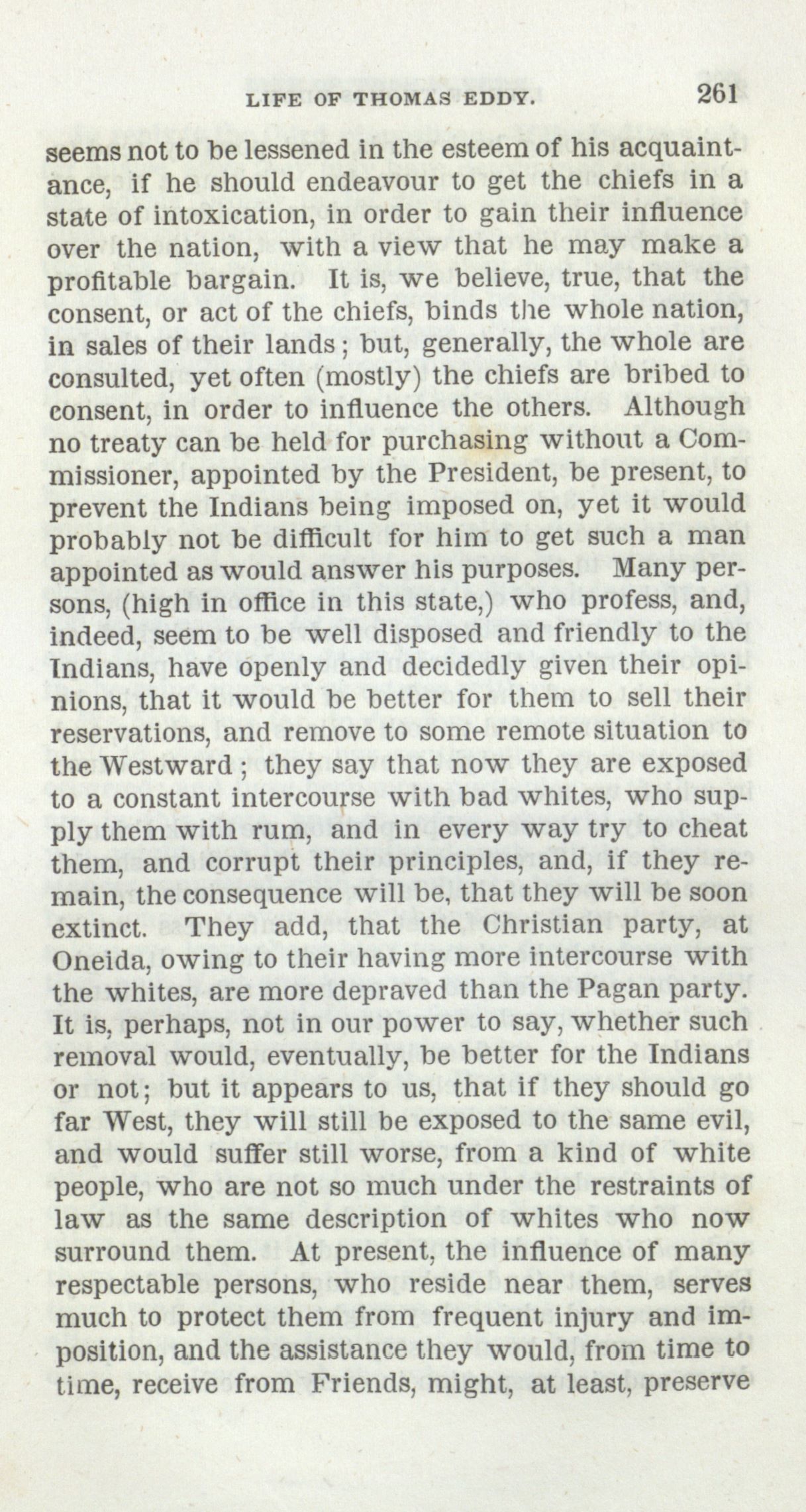seems not to be lessened in the esteem of
his acquaint-
ance, if he should endeavour to get the chiefs in
a
state of intoxication, in order to gain their influence
over
the nation, with a view that he may make a
profitable bargain. It
is, we believe, true, that the
consent, or act of the chiefs, binds
the whole nation,
in sales of their lands; but, generally, the whole
are
consulted, yet often (mostly) the chiefs are bribed
to
consent, in order to influence the others. Although
no treaty
can be held for purchasing without a Com-
missioner, appointed by
the President, be present, to
prevent the Indians being imposed on,
yet it would
probably not be difficult for him to get such a
man
appointed as would answer his purposes. Many per-
sons,
(high in office in this state,) who profess, and,
indeed, seem to be
well disposed and friendly to the
Indians, have openly and decidedly
given their opi-
nions, that it would be better for them to sell
their
reservations, and remove to some remote situation to
the
Westward; they say that now they are exposed
to a constant
intercourse with bad whites, who sup-
ply them with rum, and in
every way try to cheat
them, and corrupt their principles, and, if
they re-
main, the consequence will be, that they will be
soon
extinct. They add, that the Christian party, at
Oneida
the whites, are more depraved than the Pagan party.
It is, perhaps, not in our power to say, whether such
removal would, eventually, be better for the Indians
or not; but it appears to us, that if they should go
far West, they will still be exposed to the same evil,
and would suffer still worse, from a kind of white
people, who are not so much under the restraints of
law as the same description of whites who now
surround them. At present, the influence of many
respectable persons, who reside near them, serves
much to protect them from frequent injury and im-
position, and the assistance they would, from time to
time, receive from Friends, might, at least, preserve

